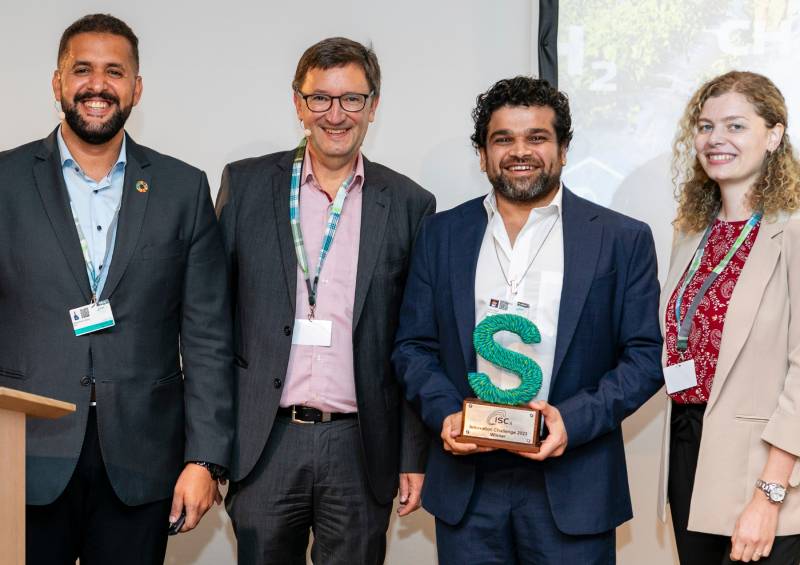Schutzen Chemicals Wins ISC3 Innovation Award 2023

In the ISC3 Innovation Challenge 2023, Schutzen Chemical Group, led by founder Raj Tanna, clinched the ISC3 Innovation Award 2023 for their commitment to Sustainable Chemistry. Tanna highlights the dire consequences of increased plastic production, including global warming, harmful substance release, and poor end-of-life options.
The startup focuses on developing biobased and biodegradable solutions using polymers from tamarind tree fruit seeds, aiming to replace fossil raw materials in various industries. The ISC3 Innovation Award, valued at 15,000 euros, recognizes their significant contribution to Sustainable Chemistry.
Motivated by the ISC3 initiative, Raj Tanna transitioned from fossil chemistry to Sustainable Chemistry. Since 2020, ISC3 has supported Schutzen through its Global Start-up Service, leading to successful developments in optimizing polymer benefits from tamarind tree fruits.
Tamarind, a valuable and sustainable raw material, is abundant in India, requiring less fertile soil than alternatives like guar beans. Tamarind seeds, often considered waste, become an inexpensive raw material for Schutzen’s innovative solutions.
Schutzen has developed a patented process to obtain tamarind polymers with unique properties, replacing traditional chemicals in applications like indigo dyeing and skincare products. The startup’s success lies in understanding how tamarind polymers can be processed sustainably across industries.
Raj Tanna emphasizes ISC3 as a catalyst for sustainable change, directly motivating and inspiring Schutzen to develop more sustainable chemicals aligned with global needs. Schutzen’s innovative approach offers solutions for reducing water consumption and replacing toxic chemicals in textile applications.
Tamarind polymer, with almost 60 years of industry use, has been applied in polyester printing in India for the past two decades. Schutzen’s Biobased Resin finishing package, developed post-university research, achieves wrinkle-free effects without toxic chemicals, enabling a more sustainable approach to cellulosic fibers like cotton.
The chemical processes at Schutzen involve making tamarind polymers water-soluble through depolymerization and carboxylation, resulting in two basic polymers with unique properties. This process makes fibers shrink and crease-resistant, essential for use in resin finishing. Schutzen Chemical Group’s sustainable innovations pave the way for positive environmental impacts in various industries.














